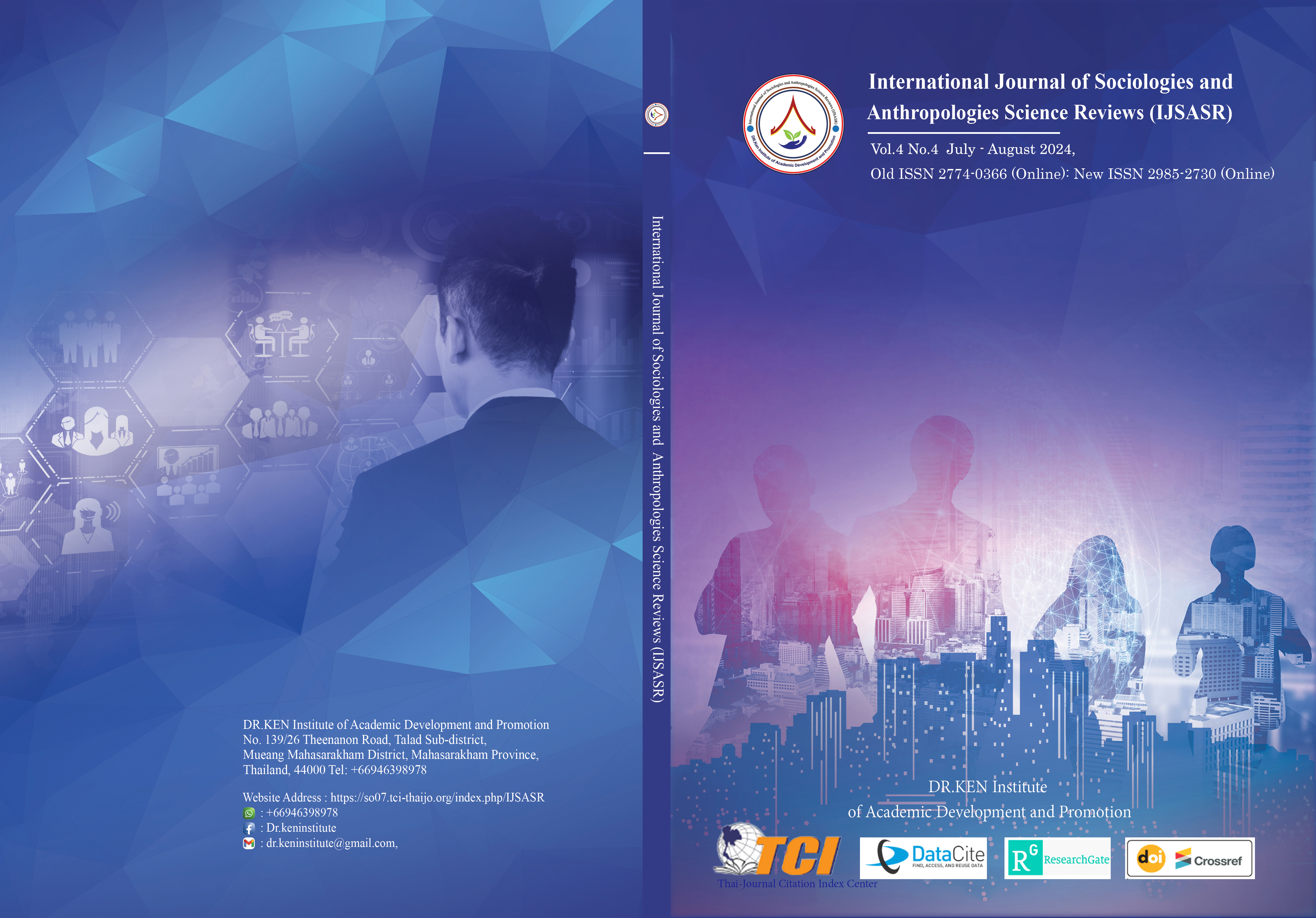The Development of an Instructor Competency Model for Music Instructors in Guizhou Province, China
Main Article Content
Abstract
Background and Aims: Instructor competence is especially critical for instructors at the university level as they often teach already skilled students, and there is the expectation of a more rigorous and in-depth educational experience. This study sought to develop a music instructor competency model for higher education instructors in Guizhou, China. The study objectives were: (1) To determine the desired knowledge and competencies for music instructors in higher education; (2) To measure the current and desired music instructors' knowledge and competencies in universities in Guizhou Province, China, (3) To find the gap between the current and desired music instructors' levels of knowledge and competencies in universities in Guizhou Province, China, and (4) To develop a proposed competency model for music instructors in Guizhou Province, China.
Methodology: An exploratory sequential mixed methods instrument development design was used. Music instructors from six normal universities and eight comprehensive universities were the population for the study. The sample size was 429 music instructors. Gap analysis using the PNI modified method.
Results: The priority needs ranked from highest to lowest were music instructor self-image, skill, technological knowledge, pedagogical knowledge, attitude, and content knowledge. A model was proposed and subsequently validated by experts. The model is intended to be used as a guide for music instructor evaluation and identifying areas for professional development and growth.
Conclusion: the key priorities for music instructors were highlighted by the study, which placed a strong emphasis on knowledge, talent, and self-image. The study concluded with the validation of a model intended to improve evaluation and promote professional development in the industry.
Article Details

This work is licensed under a Creative Commons Attribution-NonCommercial-NoDerivatives 4.0 International License.
Copyright on any article in the International Journal of Sociologies and Anthropologies Science Reviews is retained by the author(s) under the under the Creative Commons Attribution-NonCommercial-NoDerivatives 4.0 International License. Permission to use text, content, images, etc. of publication. Any user to read, download, copy, distribute, print, search, or link to the full texts of articles, crawl them for indexing, pass them as data to software, or use them for any other lawful purpose. But do not use it for commercial use or with the intent to benefit any business.

References
Backfisch, I., Lachner, A., Hische, C., Loose, F., & Scheiter, K. (2020). Professional knowledge or motivation? Investigating the role of Teachers' expertise on the quality of technology-enhanced lesson plans. Learning and instruction, 66, 101300.
Basilotta-Gómez-Pablos, V., Matarranz, M., Casado-Aranda, L.A., & Otto, A. (2022). Instructors’ digital competencies in higher education: a systematic literature review. International Journal of Educational Technology in Higher Education, 19(1), 1-16.
Chen, J. (2021). The role orientation of pre-service music instructors in the information 2.0 era - the role transformation of future music instructors based on the "TPACK" framework. Inner Mongolia Education, 5, 27-31.
Conway, C.M. (2020). Teaching music in higher education. Oxford University Press.
Don G., Garvey C., Sadeghpour M. (2009). Theory and practice. In Gurung R. A. R., Chick N. L., Haynie A. (Eds.), Exploring signature pedagogies: Approaches to teaching disciplinary habits of mind (pp. 81–98). Sterling, VA: Stylus.
Dziuban, C., Graham, C.R., Moskal: D., Norberg, A., & Sicilia, N. (2018). Blended learning: the new normal and emerging technologies. International journal of educational technology in Higher education, 15, 1-16.
Gordon, D., Blundell, C., Mills, R., & Bourke, T. (2023). Teacher self-efficacy and reform: A systematic literature review. The Australian Educational Researcher, 50(3), 801-821.
Huang, X.Y. (2015). Music Instructors may as well Moderate "Self-Deception" - on the Attitude Change of Music Instructors Under Psychological Cues. Music Education in Primary and Secondary Schools, 2, 3-5.
Huanyuan, Z. (2022). Problems in China's college music teaching in recent years. International Journal of Management and Education in Human Development, 2(2), 458-460.
Koehler, M. J., & Mishra, P. (2009). What is technological pedagogical content knowledge? Contemporary Issues in Technology and Teacher Education, 9(1), 60-70.
Law, W. W., & Ho, W. C. (2009). Globalization, values education, and school music education in China. Journal of Curriculum Studies, 41(4), 501-520.
McClelland, D.C. (1998). Identifying competencies with behavioral-event interviews. Psychological science, 9(5), 331-339.
Shi, H. (2021). Research on the digital presentation and inheritance of traditional music in the Internet era. In Journal of Physics: Conference Series (Vol. 1992, No. 4: 042041). IOP Publishing.
Sirirn, J. (2021). Inviting You to Conduct a Research Study with PNI Statiticainasis Analysis. Salika.
Wray, E., Sharma, U., & Subban: (2022). Factors influencing teacher self-efficacy for inclusive education: A systematic literature review. Teaching and Teacher Education, 117, 103800.
Yong, D.Q. (2021). Music teaching method. Southwest Normal University Press,16-18,67-69.
Zhao, L. & Chen, H. G. (2011). University Teacher Competency Model and Its Application Thinking. Education and Occupation, 86-88.






